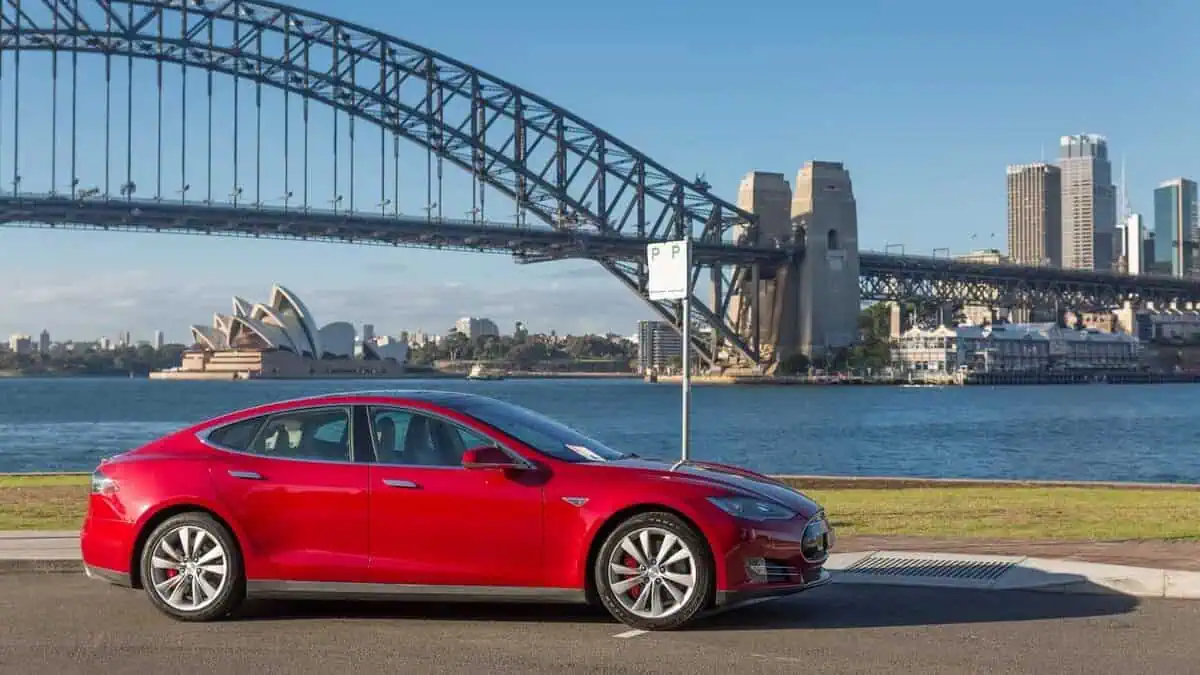Here is a list of every new electric vehicle available in Australia as of January 23, 2023, sorted from least expensive to most expensive (MSRP).
Priced under $50,000
Batteries are costly, and while breakthroughs and scale will reduce manufacturing costs, the most affordable EV in Australia remains well over $40,000.
Priced under $50,000-$120,000
This segment features some of the most popular models on the market in Australia right now, including Tesla.
| BRAND | MODEL | PRICE |
| NISSAN | LEAF | $50,990 |
| HYUNDAI | KONA ELECTRIC | $54,500 |
| MINI COOPER | SE | $55,650 |
| POLESTAR | 2 | $63,900 |
| KIA | NIRO EV | $65,300 |
| MAZDA | MX-30 ELECTRIC | $65,490 |
| TESLA | MODEL 3 | $65,500 |
| HYUNDAI | IONIQ 5 | $69,900 |
| TESLA | MODEL Y | $72,300 |
| VOLVO | XC40 RECHARGE | $72,990 |
| LEXUS | UX300E | $74,000 |
| KIA | EV6 | $72,590 |
| VOLVO | C40 RECHARGE | $74,990 |
| MERCEDES-BENZ | EQA | $78,513 |
| MERCEDES-BENZ | EVITO TOURER | $89,353 |
| MERCEDES-BENZ | EQB | $87,800 |
| BMW | I4 | $99,900 |
| GENESIS | GV60 | $103,700 |
| BMW | IX3 | $114,900 |
Priced over $120,000
These high-end electric vehicles produced by some of the world’s most premium car brands, overflowing with technology and efficiency, demonstrate the future of driving.
| BRAND | MODEL | PRICE |
| MERCEDES-BENZ | EQC | $122,724 |
| GENESIS | ELECTRIFIED GV70 | $127,800 |
| BMW | IX | $135,900 |
| GENESIS | ELECTRIFIED G80 | $145,000 |
| JAGUAR | I-PACE | $146,857 |
| AUDI | E-TRON | $147,400 |
| PORSCHE | TAYCAN | $158,100 |
| AUDI | E-TRON GT | $181,700 |
| BMW | I7 | $297,900 |
| MERCEDES-AMG | EQS53 | $328,400 |
While these are affordable to the highest prices for EVs in Australia, they only include new ones. There are also used electric vehicles and older models available.
The most affordable electric vehicle in Australia
The lowest-priced electric vehicle in most Australian states is currently the MG ZS EV Excite at $44,990; however, the lowest-priced electric vehicle in Australia is the BYD Atto 3 (priced at $44,381 before state taxes in Tasmania), though this is subject to fluctuation as more EVs enter the market (and second-hand EVs are available below this price point). Electric vehicles will become more affordable in Australia in the upcoming years.
Number of electric vehicles in Australia
EV sales in Australia in both 2021 and 2022 accounted for 1.95 percent of the market, with 20,655 vehicles sold throughout the year.
Reasons why EVs are expensive in Australia
There are several factors why electric vehicles are so costly. For starters, they’re a technological innovation, which means car companies are trying to recoup the money they spent developing said technology while marketing the next-gen touch of an all-electric car.
Scarcity is another essential factor. EVs are currently in short supply in Australia, creating a demand bottleneck. This has also resulted in massive back-ordering issues for Australians, particularly those looking for Teslas. (As a side note, used Teslas are currently more costly than new Teslas because they are in stock and do not require a backorder).
The luxury car tax
The luxury car tax is a tax charged on luxury cars (confusing, I know). Still, it also applies to latest electric vehicles in Australia (particularly those costing more than $79,659, the luxury car threshold).
Based on the ATO, the luxury car tax is charged at 33% on amounts exceeding the luxury car threshold. It is paid for by companies and individuals who import luxury vehicles. The exact formula is (LCT value LCT threshold) 10 11 33%. This applies to vehicles less than two years old, which is why it is frequently associated with electric cars. It’s a noticeable extra fee on the used market, where sellers attempt to recoup their investment.
Electric vehicle battery
Electric vehicle batteries, like phone batteries, deteriorate over time. Although an EV battery degrades over time, most manufacturers provide battery replacement options.
EV battery replacements can be expensive, costing thousands of dollars. It’s best to do your homework and figure out how much a battery replacement would cost you with your preferred vehicle. Also, it would help if you only had to start replacing your EV battery once it is at least ten years old.
EV charging time
Electric car charging speeds vary greatly depending on the model of the vehicle and the type of charger used. According to Evse, charging an electric car with a supplied portable charger or a home charger can take as little as 30 minutes when using an ultra-rapid 350kW charger. Still, it can also take eight to 48 hours when using a provided portable charger or a home charger.
Cost of an electric vehicle in Australia
Unless otherwise specified, public EV charging points are not usually accessible. It is determined by the network of charging points you are using.
Charging your car at home will reduce your power bill. According to Drive, a full battery charge for a 60kWh car costs between $14 and $25, depending on where you live.
The Australian government on electric vehicles
The Australian government intends to exempt certain EVs from the benefits and perks tax, making them more affordable for employers and eliminating the 5% import tariff on some models. It is also in the initial stages of creating an electric vehicle strategic plan and intends to build a nationwide network of EV chargers.
Aside from that, most of Australia’s enthusiasm for electric vehicles has come from state governments, which have offered refunds and waived stamp duty to urge people to go electric.






